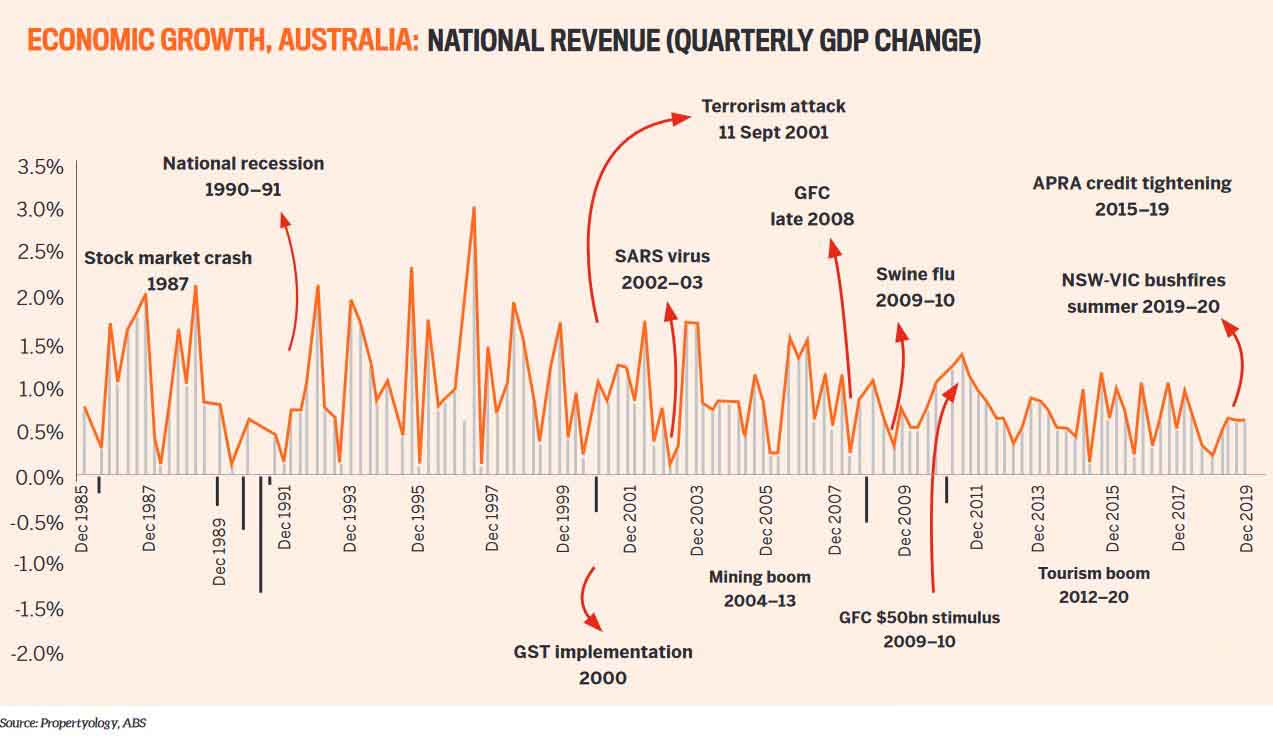While digital media has many positives, one of the biggest downsides is that it amplifies negative news 50-fold. The proliferation of negativity seems to have progressively diluted the human race’s ability to process information in a calm and logical manner.
If you’re the glass-half-empty type, the coronavirus is your latest dose of doom and gloom.
From trade wars and natural disasters to the threat of negative gearing being scrapped, the stock market wobbles over the years, the mining downturn and election campaigns, there is alway something happening somewhere that, according to some, could be the next Armageddon.
But the reality is that the direct impact these events have had on the property markets has been nowhere near as damning as fearmongering commentary suggested it would be.
On the balance of probabilities, the coronavirus (a respiratory illness from the same family of viruses as the common cold and SARS) is likely to have a minor long-term influence on Australian property markets.
For total avoidance of doubt, we maintain our initial stance that property market conditions right now are the best they’ve been for over a decade. The fundamentals have not changed!
“If you’re the glass-half-empty type, the coronavirus is your latest dose of doom and gloom ... there is always something happening that could be the next Armageddon”
To be frank, we are anticipating that this will create a unique buying opportunity, as it’s a window in time that will be bookended by the solid start to 2020 and the point at which the nervous Nellies return to the market once they’ve realised there was nothing to worry about.
From a property market perspective, a virus is a one-off event that comes and goes within a relatively short period of time. Like SARS (2002–3) and swine flu (2009–10), we have every reason to expect that this coronavirus risk will be largely gone within months, not years.
Stock markets typically react to sentiment, as again evidenced by the ASX 200 index shedding 8% in value during the month of February. History has proven that some share investors respond to perceived uncertainty caused by major global events by withdrawing their equities and placing their money in safer alternatives.
Real estate has always been a popular alternative, but with cash rates being so low it might look even more attractive right now as an asset class, as opposed to shares on a stock exchange, because it does not experience wild fl uctuations within short periods of time.
The impact of a virus on a property market is akin to a water stain on a ceiling in a house – we know it must be taken seriously and that proper investigation will uncover a solution to the cause, but it has no bearing at all on the foundations of the asset.
In the words of Warren Buffett, “The time to be greedy is when everyone else is fearful”. When the flock of seagulls come out and start fighting over that chip, they’ll drive property prices higher, making the biggest beneficiaries those who ate their chips before the flock arrived.
Simon Pressley is head of property market research and managing director at Propertyology
